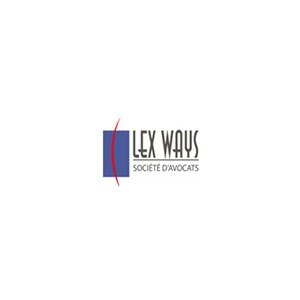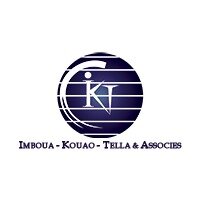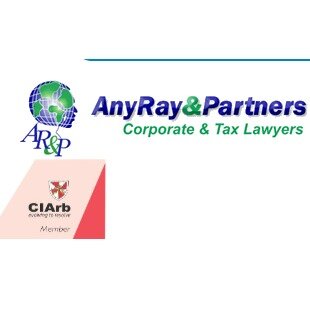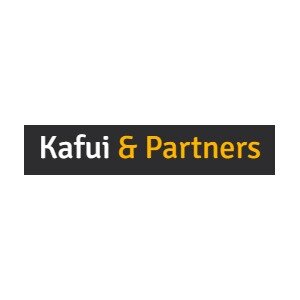Best Structured Finance Lawyers in Ivory Coast
Share your needs with us, get contacted by law firms.
Free. Takes 2 min.
Or refine your search by selecting a city:
List of the best lawyers in Ivory Coast
About Structured Finance Law in Ivory Coast
Structured finance refers to complex financial instruments and transactions that are designed to address unique and sophisticated funding needs, often involving the pooling of assets and the issuance of securities backed by those assets. In Ivory Coast, structured finance plays a crucial role in developing markets such as infrastructure, energy, agri-business, and telecommunications. Entities may engage in structured finance for project funding, risk mitigation, or capital raising. The legal framework governing structured finance in Ivory Coast is influenced by both national legislation and regional regulations stemming from the OHADA (Organization for the Harmonization of Business Law in Africa) Uniform Acts.
Why You May Need a Lawyer
Structured finance transactions involve intricate legal, regulatory, and financial elements that require specialized knowledge. Common situations where individuals and businesses may need legal assistance in the context of structured finance in Ivory Coast include:
- Drafting and negotiating complex financing agreements and securities documents
- Structuring asset-backed loans or securitizations
- Ensuring compliance with local and regional financial laws and regulations
- Managing cross-border financing involving multiple jurisdictions
- Restructuring existing loans or financial arrangements due to default or insolvency
- Assessing legal risks and liabilities associated with structured financial products
- Representing stakeholders in the event of disputes related to structured finance transactions
Local Laws Overview
In Ivory Coast, structured finance is subject to a combination of local and uniform regional legal instruments. The following are key aspects of the legal landscape:
- OHADA Uniform Acts: These acts govern key areas such as securities, commercial companies, and insolvency processes, providing a harmonized legal framework across francophone West Africa including Ivory Coast.
- Financial Sector Regulation: The Western African Economic and Monetary Union (WAEMU) and the Central Bank of West African States (BCEAO) issue guidelines on banking, securities, and capital markets that impact structured finance transactions.
- Local Commercial and Civil Codes: National laws regulate property rights, contractual obligations, and the registration and enforcement of securities.
- Taxation: Tax laws can significantly impact the structure and viability of finance deals, including rules on withholding tax, VAT, and stamp duties.
- Foreign Exchange Controls: Certain transactions, especially those involving cross-border flows, may require adherence to currency controls and reporting obligations.
Navigating these regulations effectively requires a deep understanding of both local and regional law.
Frequently Asked Questions
What is structured finance?
Structured finance refers to complex financial arrangements where assets or cash flows are packaged to obtain funding or manage risks, often used in large-scale projects and investments.
Who typically uses structured finance in Ivory Coast?
Corporations, financial institutions, government agencies, and large project developers often use structured finance to fund infrastructure, energy, agriculture, and other capital-intensive projects.
Are there specific laws regulating structured finance in Ivory Coast?
Yes, structured finance is governed by the local legal system, OHADA Uniform Acts, WAEMU and BCEAO financial regulations, as well as sector-specific and cross-border finance laws.
Can individuals or small businesses access structured finance?
Structured finance is usually tailored to larger organizations or projects, but some structures, such as microfinance-backed securitizations, may serve smaller entities.
Do structured finance transactions need to be registered with local authorities?
Certain transactions, such as the creation of security interests over assets, generally must be registered with relevant registries to be legally enforceable.
What are the risks involved in structured finance deals?
Risks can include default risk, legal risk, regulatory changes, tax implications, and potential disputes among parties. Legal advice is essential to identify and manage these risks.
How does tax law affect structured finance deals?
Taxation can influence the choice of structure for a transaction, the overall cost, and the returns for investors. It is important to understand and comply with relevant tax obligations.
Are foreign investors allowed to participate in structured finance in Ivory Coast?
Yes, foreign investors may participate, but they must comply with local laws, foreign exchange regulations, and may need to obtain certain approvals.
What happens if there is a dispute in a structured finance transaction?
Disputes may be resolved through negotiation, mediation, arbitration, or litigation in local courts, depending on the terms of the contract and the nature of the dispute.
Can a lawyer help renegotiate or restructure existing finance agreements?
Yes, a lawyer can provide critical support in renegotiating terms, ensuring compliance with applicable regulations, and mitigating risks for all parties involved.
Additional Resources
People seeking more information or assistance with structured finance in Ivory Coast may consult the following resources:
- BCEAO (Central Bank of West African States) - Responsible for monetary policy and financial sector regulation.
- OHADA National Commission - Provides interpretation and guidance on the application of OHADA Uniform Acts.
- Ministry of Economy and Finance of Ivory Coast - Relevant for tax and investment regulations.
- Court of Commerce of Abidjan - Jurisdiction over commercial disputes.
- Local law firms and banks with experience in structured finance transactions.
- Regional organizations such as WAEMU and CREPMF (Regional Council for Public Savings and Financial Markets) for information on capital markets and securities.
Next Steps
If you believe you need legal assistance with a structured finance matter in Ivory Coast, consider the following steps:
- Identify the specific nature of your transaction or legal concern.
- Gather relevant documentation such as contracts, financial statements, and correspondence.
- Consult a lawyer or legal adviser with experience in structured finance and knowledge of both local and OHADA law.
- Request an initial consultation to discuss your project or issue, potential legal risks, and available options.
- Ensure clear communication with your legal team throughout the process and stay informed about regulatory changes that may impact your transaction.
Structured finance transactions can be highly beneficial when properly structured and compliant with all relevant regulations. Seeking professional legal guidance is essential to navigate the complexities and safeguard your interests.
Lawzana helps you find the best lawyers and law firms in Ivory Coast through a curated and pre-screened list of qualified legal professionals. Our platform offers rankings and detailed profiles of attorneys and law firms, allowing you to compare based on practice areas, including Structured Finance, experience, and client feedback.
Each profile includes a description of the firm's areas of practice, client reviews, team members and partners, year of establishment, spoken languages, office locations, contact information, social media presence, and any published articles or resources. Most firms on our platform speak English and are experienced in both local and international legal matters.
Get a quote from top-rated law firms in Ivory Coast — quickly, securely, and without unnecessary hassle.
Disclaimer:
The information provided on this page is for general informational purposes only and does not constitute legal advice. While we strive to ensure the accuracy and relevance of the content, legal information may change over time, and interpretations of the law can vary. You should always consult with a qualified legal professional for advice specific to your situation.
We disclaim all liability for actions taken or not taken based on the content of this page. If you believe any information is incorrect or outdated, please contact us, and we will review and update it where appropriate.
Browse structured finance law firms by city in Ivory Coast
Refine your search by selecting a city.












